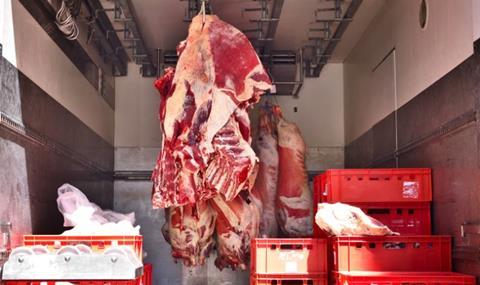
Fresh food logistics to and from the continent must be prioritised if it is to remain competitive after the UK leaves the EU, according to the British Meat Processors Association (BMPA).
It said the £8.7bn trade in meat products, which keeps the just-in-time food supply chain moving, was about to “run into a huge brick wall” after the government refused to give it precedence over other products travelling through ports.
The BMPA said an HGV carrying anything other than fresh or live seafood products, or day-old chicks, would have to join the queue behind other lorries and that the government was not taking into account the perishability of goods.
Nick Allen, BMPA chief executive said: “Our EU customers – the big supermarket chains and food service companies – are not concerned with how good or bad our customs system is, they just need to know we can deliver what they want, on time.
“The new 27 acre lorry park being built in the Kent countryside serves as a conspicuous reminder of the massive disruption to trade that is about to happen on 1 January.”
Read more
- No-deal Brexit could make cost of transporting goods unaffordable, Logistics UK boss warns operators
Allen said every extra hour that fresh meat was delayed in transit caused problems further on in the supply chain, which devalued the product.
He said that if expected delivery times extend beyond a certain point, the meat must be frozen, causing further devaluation and also turns it into a different product that customers were not demanding: “If fresh meat exports do not get priority over products like toasters, which don’t devalue every hour they’re delayed, it will undermine the reputation of British meat and remove a big competitive advantage British meat processors have over other countries, which is the ability to deliver fresh chilled meat to EU customers in a timely manner,” Allen added.
“If meat exports are delayed, customers will simply start sourcing their meat from elsewhere.”
The BPMA said it wanted the government to introduce a graduated system that prioritised goods for export and gave a higher priority to perishable goods like sausages and fresh meat.
It recently warned that Britain did not have enough vets to inspect and sign an export health certificate for all overseas consignments of meat products leaving factories after 31 December.
Last month, Logistics UK wrote to the Sunday Times pointing out that everyday household items imported into the UK would become up to 30% more expensive in a no-deal scenario.













